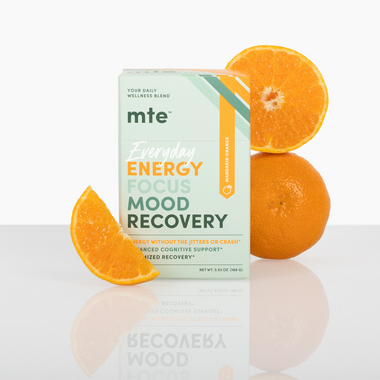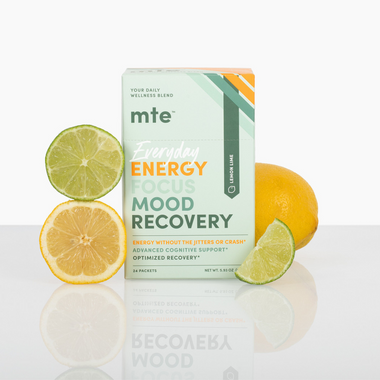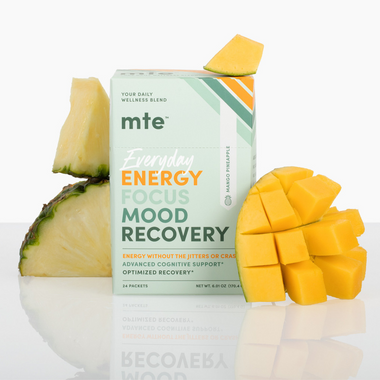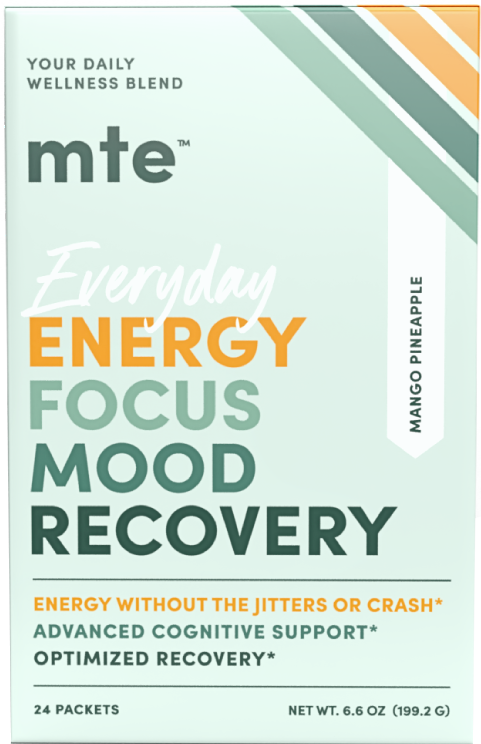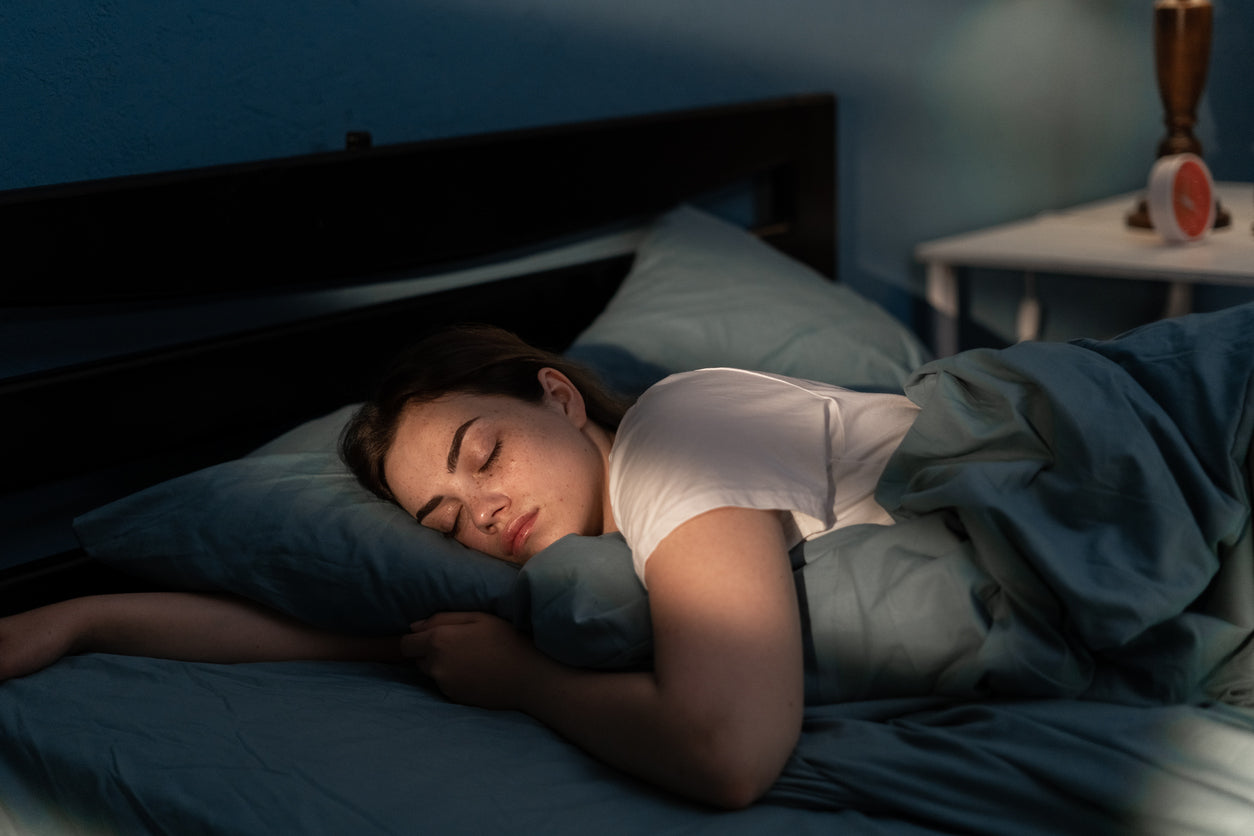
Nootropics for Sleep: Theory, Argument & Evidence
Nootropics, also known as cognitive enhancers, smart drugs, the artist formerly known as Prince, have quickly become of interest in the health and wellness industry. With the rise of adaptogens for stress and superfoods for mind and body health, it was only natural nootropics came along for the ride.
You’ve likely been consuming nootropics your whole life, in the form of coffees and teas. Caffeine! But caffeine is known to have its downsides, like jitters, stress, crash, and sleep disturbances.
Caffeine isn’t the only nootropic that helps you focus in, be productive and perform at your best; but it is the only natural nootropic that has a longer list of health risks than it does benefits. Considering one of those health risks is chronic sleep disturbances, we’ve got to look at other nootropics for sleep support and cognitive support.
Let’s Remind Ourselves Why Sleep is So Important
First, why do we care so much about prioritizing sleep? Because it plays a role in our mental and physical health. Like, all of it. Your body spends time producing growth hormone and ATP while regulating other chemical processes that repair and restore cell health, DNA, cognitive capabilities, gut health, and much more.
So when you don’t get enough sleep and/or the sleep you get is poor, you basically prevent your body from performing necessary maintenance, creating a cascade effect of some pretty nasty things. Every night of poor sleep you get, you wake up with dysregulated chemical processes that control blood sugar, mood, emotional reactivity, stress, immunity, muscle function, and digestion.
Considering it takes more than 2 nights of good sleep to make up for 1 poor one, this constant dysregulation of key chemical interactions results in:
Short Term
- Increased stress, irritability, mood disturbances
- Decreased ability to pay attention and focus
- Headaches and stomachaches
- Decreased precision motor control, including basic behaviors
- Poorer judgment, higher risk-taking behavior
Long Term
Consider how this state of chemical disrepair just piles and piles up, possibly leading to
- Chronic lowered mood
- Heart problems
- Obesity and type 2 diabetes
- Lower quality of life
- Cancers
- Death
For more horrible sleep facts, check out our article: 20 Sleep Stories to Tell in the Dark
Nootropic Theory: What Do These “Smart Drugs” Do?
Alright; let’s bring it back up and get back to nootropics! Nootropics are chemical compounds able to pass through the blood-brain barrier, where they support and even improve cognitive processes. They do this by interacting with and modulating neurochemical communication in the brain. That’s why nootropics can enhance not just mental performance but physical as well.
Synthetic nootropics are used in clinical psychiatry to treat chronic mental ailments characterized by chronic low mood and/or high stress reactivity. And we’ve already talked about how almost all of us use a natural nootropic for focus, energy and performance every time we reach for a caffeinated drink.
But we haven’t yet talked about how, when you choose the right natural nootropics, you get support for better daytime energy, focus and capability that also promotes better sleep. Pretty cool, right?
The Argument: Nootropics Can Support Sleep Health
Okay, so let’s unpack how something that can wake you up can also calm you down, because, unlike adaptogens, nootropics benefits are more targeted, so their mechanisms are better understood. For instance,
- Nootropics that modulate HPA activity can calm the parasympathetic nervous system, stalling the release of pro-stress chemicals. This results in a clear mind in the moment, and prevention of stress chemicals still swimming around in your bloodstream when you’re trying to head to sleep a few hours later.
- Nootropics that interact directly with the main neurotransmitter involved in mood, memory and learning can elicit a tranquil focus and facilitate improved cognition. Because it regulates this key neurochemical, it encourages the natural cycles of production and distribution that promote healthy sleep.
- Nootropics that protect hippocampal health support long-term cognitive health, which not only protects against the negative effects of sleep deprivation on the hippocampus, but promotes mood health as well. Mood quality, sleep health and hippocampal plasticity are known to be closely interrelated.
The Evidence: The Science Behind Nootropics for Sleep
There’s no shortage of studies on plant-sourced and naturally-occurring nootropic compounds exploring everything from cognition to fitness to libido to sleep. Let’s look at some of the most promising studies looking at nootropics effects on sleep quality:
- A 2021 meta-analysis of the literature on nootropics benefits for sleep indicated that all relevant studies analyzed found significant improvements in sleep quality with 8 weeks of daily ashwagandha consumption. This was also accompanied by more mental alertness and energy upon waking.
- A 2022 meta-analysis on a range of nootropics found that the body of studies in each one indicated benefits for sleep health, including improved sleep quality and improved resistance to the cognitive effects of sleep deprivation.
- A 2019 randomized, double-blind, placebo-controlled study on ashwagandha’s nootropic properties observed 8 weeks of treatment reduce perceived stress and morning cortisol levels while significantly improving sleep quality.
For a detailed guide to these crazy lil compounds, complete with even more studies to explore, read our article: What are Nootropics?
Balancing Zoning in & Winding Down: MTE’s Nootropic Stack
As a result of many, many trials, much research, too many tastings, and searching for the highest-quality ingredient sources, we settled on the perfect nootropic stack in MTE. It complements our stress-busting, mood-boosting adaptogen stack with an energy and focus-promoting nootropic stack. Together, they support sleep health, both directly and indirectly for 360° support for well-being.
Our dual focus and sleep supporters include:
GABA: An amino acid and neurotransmitter that tells overexcited neurons to calm down, while exciting underactive ones. This serves to balance wakefulness and sleep, not to mention support for mood and stress.
L-Theanine: A compound found in tea leaves that has stress-reducing, pro-focus effects associated with a clear calm. This nootropic interacts with several key neurochemicals in regulating chemical processes throughout the day and night, supporting sleep by promoting stress resilience.
Saffron: A superfood and nootropic, saffron offers many health benefits, sleep being among them. Studies show saffron can improve sleep quality ratings as well as mood upon waking up.
Holy Basil: An ancient medicinal plant often used for sleep and fatigue, studies have observed holy basil supplements reduce measures of stress, improve measures of sleep quality, and increase levels of a neurochemical that plays a major role in energy, mood, focus, and memory.
Comprised of just 11 adaptogens, nootropics and superfoods, MTE is a caffeine-free solution to sustainable energy that feels good. Think about it – jitter-free energy without the crash, better focus without the stress, energy-boosting nootropics that don’t mess with sleep. MTE is a supplement you can feel – a wellness powder made for a clean, post-caffeine world. Check it out!
